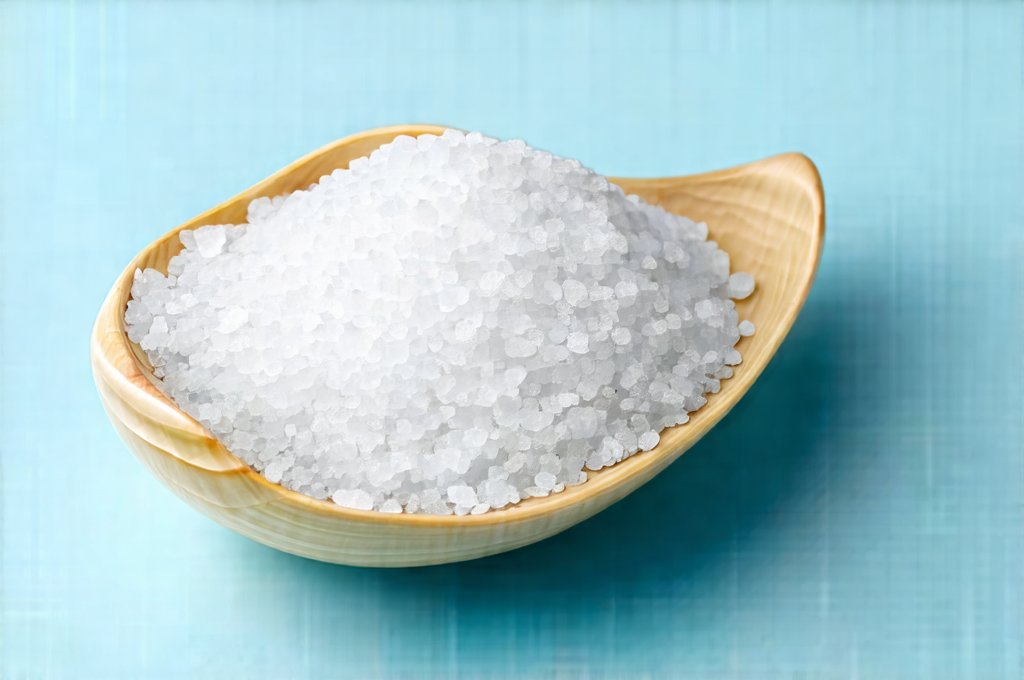Constipation is a remarkably common digestive issue, affecting people across all age groups and demographics. Often dismissed as a minor inconvenience, chronic constipation can significantly impact quality of life, leading to discomfort, bloating, and even more serious complications if left unaddressed. While many associate constipation with inadequate fiber intake or dehydration, a less-recognized factor increasingly comes into play: dietary sodium levels, particularly when experiencing phases of markedly low salt consumption. This isn’t to say that reducing sodium is inherently bad—in fact, for many people, reducing excess sodium is beneficial for overall health. However, abrupt or extreme reductions in sodium intake can disrupt the delicate balance within the digestive system, triggering or worsening constipation symptoms in susceptible individuals.
The relationship between salt and bowel function isn’t always intuitive. We often think of fiber as the primary driver of regularity, but water movement within the intestines is crucial for efficient waste elimination. Sodium plays a vital role in regulating fluid balance – it draws water where it’s needed. When sodium levels plummet, the body can respond by reabsorbing more water from the colon, leading to harder stools and decreased peristalsis (the muscular contractions that move waste through the digestive tract). This effect is amplified when combined with other factors known to contribute to constipation, such as insufficient hydration or a low-fiber diet. It’s important to understand that this isn’t about adding excessive salt; it’s about maintaining a balanced intake and avoiding drastic fluctuations in dietary sodium content. If you suspect your constipation might be more complex, consider tests that help doctors understand chronic constipation.
The Sodium-Water Connection & Bowel Function
The human body is approximately 60% water, and maintaining proper hydration is fundamental for nearly all physiological processes, including digestion. Sodium chloride (table salt) is the primary source of sodium in most diets, and it’s essential for osmoregulation – the process that controls fluid distribution throughout the body. Essentially, sodium acts like a magnet for water. Where sodium goes, water follows. This principle underlies its role in bowel function: sodium helps maintain the right amount of water within the intestines to keep stool soft and pliable.
When dietary sodium is drastically reduced, the body attempts to conserve this valuable electrolyte. One way it does this is by increasing water reabsorption in the colon. While efficient for maintaining overall fluid balance, this can have a detrimental effect on bowel movements. The colon extracts more water from the forming stool, resulting in harder, drier stools that are difficult to pass. This isn’t simply about feeling uncomfortable; prolonged constipation can lead to straining during defecation, potentially causing hemorrhoids or even anal fissures. It’s also crucial to note that individual sensitivity to sodium reduction varies greatly. Someone accustomed to a high-sodium diet may experience more pronounced constipation with low-salt phases than someone who generally consumes less salt. You might need advanced testing when mild constipation persists.
Furthermore, the gut microbiome—the vast community of bacteria residing in our digestive tract—can also be affected by changes in dietary sodium. Some studies suggest that alterations in sodium levels can influence the composition and function of the microbiome, potentially impacting bowel motility and overall digestion. This area is still under investigation, but it highlights the complex interplay between diet, gut health, and constipation. Maintaining a consistent sodium intake, even if on the lower side, may help support a more stable and balanced gut environment. Understanding hidden gut issues revealed by advanced scan layers can be very helpful.
Identifying Low-Salt Meal Phases & Potential Triggers
Recognizing periods of low salt intake is the first step in understanding whether it might be contributing to your constipation. This isn’t always obvious, as many people consciously or unconsciously adopt phases of reduced sodium consumption. Common triggers for low-salt meal phases include:
– Following a specific diet: Low-sodium diets are often prescribed for managing certain health conditions like hypertension or heart failure.
– Increased focus on ‘clean eating’: Trends promoting whole, unprocessed foods naturally tend to lower sodium intake.
– Homemade cooking surges: When relying more heavily on home-cooked meals (rather than restaurant food which typically has higher salt content), sodium levels often decrease.
– Sudden dietary changes: Drastically altering your diet – for example, switching from a processed food-heavy diet to a whole foods diet – can lead to a rapid drop in sodium intake.
These phases aren’t inherently negative; however, they require mindful attention to potential digestive consequences. Pay attention to your bowel habits during these periods. Are you experiencing increased difficulty passing stools? Is there a noticeable change in stool consistency (harder, drier)? Are you feeling more bloated or uncomfortable than usual? These are all signs that low salt intake may be playing a role. It’s also important to consider other factors that might contribute to constipation simultaneously, such as inadequate fiber consumption, insufficient water intake, lack of physical activity, or certain medications. If your constipation is intermittent, there are approaches to testing when it is.
The key is not necessarily to increase your sodium intake dramatically but to avoid sudden and extreme drops. Gradual adjustments to dietary habits are always preferable to abrupt changes. If you’re intentionally reducing sodium for health reasons, it’s best to do so under the guidance of a healthcare professional who can help you manage potential side effects and ensure adequate hydration.
Addressing Constipation Related to Low-Salt Diets
If you suspect your constipation is linked to low salt meal phases, here are some strategies to consider:
Firstly, hydration is paramount. When sodium levels drop, the body reabsorbs more water from the colon. Counteract this by consciously increasing your fluid intake – aim for at least eight glasses of water per day, and potentially more if you’re physically active or live in a hot climate. Electrolyte-rich beverages (like coconut water or diluted sports drinks) can also be helpful, but avoid sugary options. Secondly, focus on incorporating sodium-containing foods into your diet naturally. This doesn’t mean adding salt to every meal; it means choosing whole foods that inherently contain some sodium, such as celery, beets, and seafood.
Thirdly, consider a slightly more balanced approach to dietary changes. If you’re transitioning to a lower-sodium diet, do so gradually, allowing your body time to adjust. Avoid sudden elimination of salty foods. You can also explore using herbs and spices to flavor food instead of relying heavily on salt. Finally, remember the importance of fiber – adequate fiber intake is essential for healthy bowel movements, regardless of sodium levels. Aim for 25-30 grams of fiber per day from sources like fruits, vegetables, whole grains, and legumes. Consider meal timelines that match circadian digestive flow to help with consistency.
The Importance of Gradual Adjustments & Professional Guidance
As emphasized previously, gradual adjustments are far more effective – and less disruptive to your digestive system – than sudden dietary changes. Abruptly cutting out salt can shock the body and exacerbate constipation symptoms. Instead, make small, incremental changes over time. For example, instead of eliminating all processed foods at once, start by swapping one or two processed items for whole food alternatives each week. This allows your body to adapt more comfortably.
Furthermore, if you have underlying health conditions or are taking medications, it’s crucial to consult with a healthcare professional before making significant changes to your diet. Certain medical conditions may require specific sodium restrictions, and some medications can interact with dietary changes. A doctor or registered dietitian can help you develop a personalized plan that addresses your individual needs and minimizes the risk of adverse effects. They can also rule out other potential causes of constipation and recommend appropriate treatment options if necessary. Which digestive tests are covered by insurance? It’s a good question to ask your doctor.
Beyond Sodium: Holistic Bowel Health Strategies
While addressing sodium intake is important, it’s crucial to remember that constipation is rarely caused by a single factor. A holistic approach to bowel health involves considering multiple aspects of your lifestyle. This includes regular physical activity – exercise stimulates intestinal contractions and promotes healthy bowel movements. Stress management techniques can also be beneficial, as stress can disrupt digestive function.
Mindful eating practices – such as chewing food thoroughly and avoiding distractions during meals – can improve digestion and nutrient absorption. Finally, pay attention to your body’s signals and don’t ignore the urge to defecate. Delaying bowel movements can worsen constipation over time. In conclusion, understanding the connection between low-salt meal phases and constipation empowers you to make informed dietary choices that support optimal digestive health. Remember to prioritize hydration, gradual adjustments, and professional guidance when navigating changes in your diet or lifestyle. You may also consider symptom-free meal plans designed for busy professionals.


















